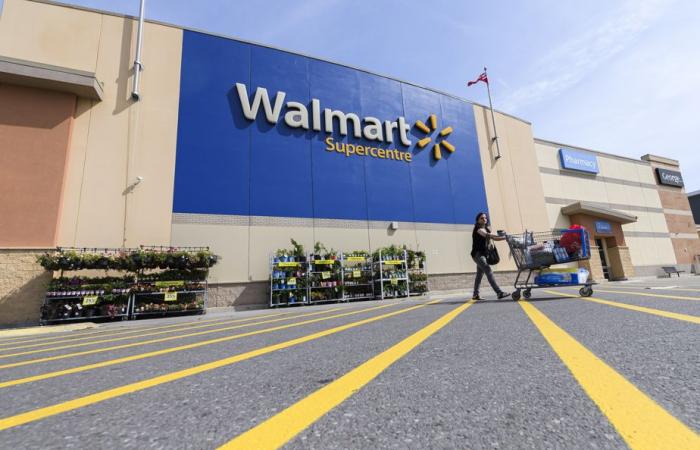(New York) Walmart, the world’s largest retailer, is abandoning its diversity, equity and inclusion (DEI) policies, joining a list of major companies that have been attacked by conservative activists.
Posted at 12:12 a.m.
Anne D’innocenzio
Associated Press
The changes, confirmed by Walmart on Monday, are sweeping and range from not renewing a five-year commitment to an equity center created in 2020 after the police killing of George Floyd, to removing a major index of gay rights. And when it comes to ethnicity or gender, Walmart won’t give suppliers priority treatment.
Walmart’s moves underscore the growing pressure facing U.S. businesses as they continue to deal with the fallout from the U.S. Supreme Court’s June 2023 decision ending affirmative action in college admissions. the university.
Emboldened by the ruling, conservative groups have filed lawsuits using similar arguments against the companies, targeting workplace initiatives such as diversity programs and hiring practices that prioritize historically marginalized groups. .
Separately, American political commentator and conservative activist Robby Starbuck attacked companies’ DEI policies, calling out individual companies on the social media platform initiatives, including Ford, Harley-Davidson, Lowe’s and Tractor Supply.
But Walmart, which employs 1.6 million workers in the United States, is the largest to do so.
“This is the biggest victory yet for our movement to end Wokism in Corporate America,” Robby Starbuck wrote on X, adding that he had held discussions with Walmart.
Walmart confirmed to The Associated Press that it will better monitor items in its third-party marketplaces to ensure they do not contain sexual and transgender products intended for minors. This would include chest wraps for young people going through a gender reassignment, the company said.
The Bentonville, Arkansas-based retailer will also review subsidies provided to Pride events to ensure it is not financially supporting sexualized content that may not be suitable for children. For example, the company wants to make sure a family pavilion isn’t next to a drag show at a Pride event, the company said.
Additionally, Walmart will no longer consider ethnicity and gender as a litmus test for improving diversity when offering contracts with suppliers. The company said it had no quotas and would not make any in the future. It will not collect demographic data to determine eligibility for funding for these grants.
Walmart also announced it would not renew an equity center that was created through a five-year, US$100 million philanthropic commitment by the company with a mandate, according to its website, “to “address the root causes of the achievement gaps experienced by Blacks and African Americans in the education, health, financial, and criminal justice systems.”
And it would stop participating in the Human Rights Campaign’s annual benchmark, which measures workplace inclusion of LGBTQ+ employees.
“We’ve come a long way and know we’re not perfect, but every decision comes from a place where we want to foster a sense of belonging, open the doors to opportunity for all of our associates, customers and suppliers and be a Walmart for everyone,” the company said in a statement.
These changes come shortly after the election victory of former President Donald Trump, who has criticized DEI initiatives and surrounded himself with conservatives who share similar views, including his former adviser Stephen Miller, who leads a group called America First Legal, which challenged companies’ DEI policies. Mr. Trump named Mr. Miller as deputy chief for policy in his new administration.
A Walmart spokesperson said some policy changes have been in the works for some time. For example, the company moved away from using the term “DEI” in job titles and communications and began using the word “belonging.” The company also began changing its supplier program following the Supreme Court’s affirmative action ruling.
Some have urged companies to stick to their DEI policies. Last month, a group of Democrats in Congress issued a call to leaders of Fortune 1000 companies, saying DEI efforts give everyone a fair chance at achieving the American dream.






